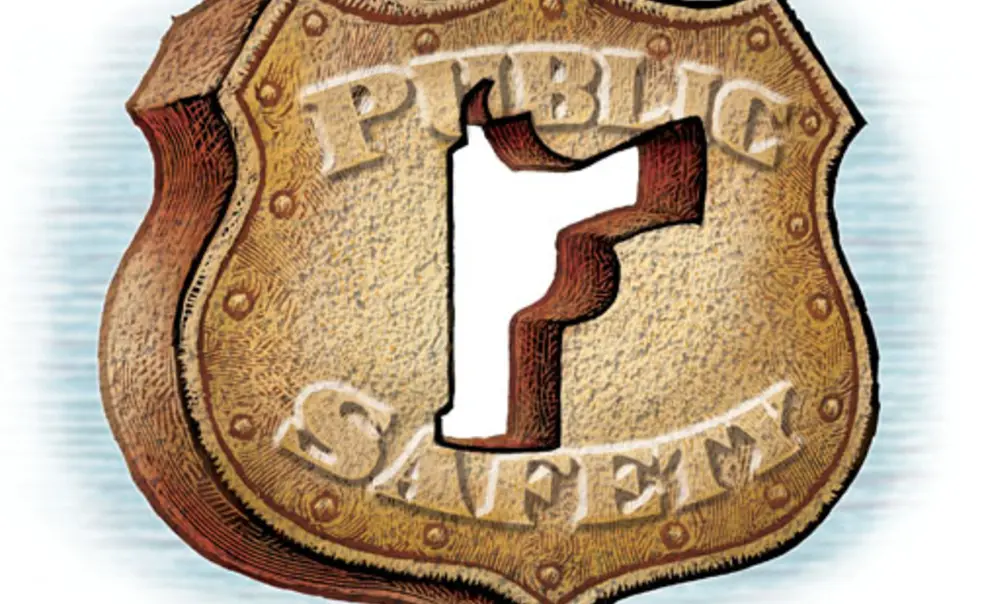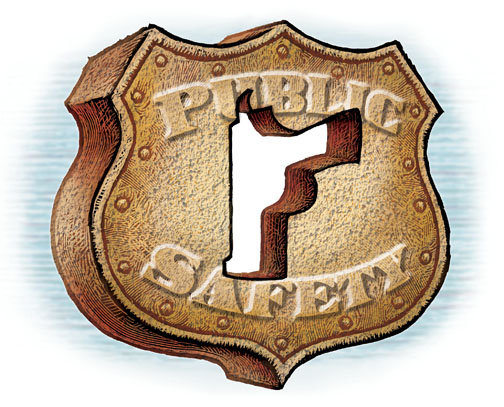Campus police officers seek debate over whether they should be armed
As campus police officers were searching faculty and staff housing Dec. 16 after a report of a potentially dangerous intruder, a basement light went on and off. The unarmed officers had no choice but to stay back and call township police for support, the officers’ union says. No intruder was found.
Fraternal Order of Police (FOP) Princeton Lodge No. 75, which represents 17 campus police officers, has argued since 2008 that the University has failed to provide them with the tools necessary to keep the campus safe. After two knifepoint robberies on University property in October, the FOP has renewed its request to allow commissioned officers to carry guns. (The University also employs non-sworn security officers.)
“The University recognizes there’s a risk,” said Michael Michalski, president of the lodge. “They trust us with police powers, but they don’t trust us with firearms, and I’m not sure why that is.” Michalski said officers want to “drive a conversation that can educate our community” and would like to meet with the University’s trustees on the issue.
While the union argues that batons and pepper spray are not sufficient to protect the campus community, the University’s executive director of public safety, Paul Ominsky, takes a different view.
“The critical question is whether Public Safety has the necessary resources to deliver timely and professional safety and security services,” Ominsky said. “We believe the answer is yes.” Campus police officers “know what situations they can handle and when they need to call for local law-enforcement response,” he said, adding that the municipal police force is “readily available and accessible.” While the campus crime rate is very low, he said, the University monitors crime trends.
Among Princeton’s peers, campus police carry weapons at Brown, Yale, Penn, Harvard, Cornell, and MIT.
Some Princeton students said that arming officers is unnecessary. “I feel that increasing the number of guns is neither helpful nor conducive to a stable community,” said Emma Snyder ’15.
But Rahul Subramanian ’15 said there is no reason to keep sworn officers from carrying firearms. “They’re police officers,” Subramanian said. “They have a lot of trust on campus — letting them have guns makes sense.”
A 2010 survey by the Undergraduate Student Government found that 56 percent of students were opposed to allowing officers to carry firearms.
The USG’s new president, Shawon Jackson ’15, said that while campus security has not been discussed recently by the USG Senate, he hopes to hear more student views. “We want to make sure our campus environment is warm and welcoming, and that everyone is comfortable with the decisions that are being made,” he said.













1 Response
Walter Winget ’58
10 Years AgoEnsuring campus safety
I note from the On the Campus column in the March 6 issue that the campus police officers are not allowed to carry guns and that there is objection to doing so, in part because “increasing the number of guns is neither helpful nor conducive to a stable community.”
I am sure our administration knows more than the administrations of Brown, Yale, Penn, Harvard, Cornell, and MIT, all of whom permit their police to carry weapons, possibly because the recent declaration of our administration that Princeton shall be a gun-free campus has produced such a bucolic atmosphere that no psychopath could possibly enter the grounds of Princeton and wreak havoc on any students or faculty.
I also am sure that students voicing opinions like that above do not know how a seemingly innocent situation can turn ugly and, when it does, the policeman present does not have time to call one of the “real” policemen with a gun. Do the students expressing such ideas have any concept of the fear and danger faced by an unarmed police officer who experiences a situation like the one described in the first paragraph of the On the Campus column, when a basement light goes on and off while the officer is searching faculty and staff housing? Of course not, because the officer is there to protect — with his life, if necessary — the safety of the students who have the luxury of debate and not the danger of confrontation.
I note an increasing trend in this country for people who never have actually faced difficult or dangerous situations to give instructions to those who are charged with that awesome responsibility.